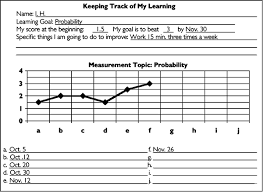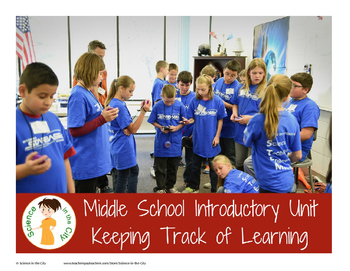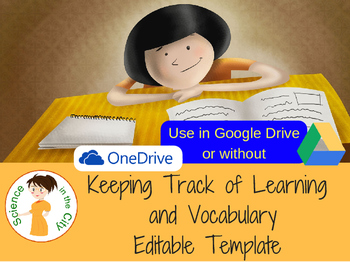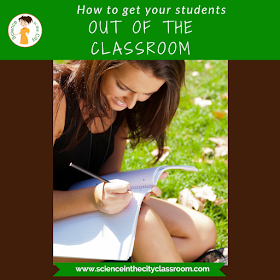How to Make Your Students Responsible for Their Own Learning
Standards Based Grading
About 2 or 3 summers ago I spent quite a bit of time reading up on Standards Based Grading and trying to figure out how, or if, I could implement it in my classroom. I believe in the idea of Standards Based Grading, which states "that grades are typically connected to descriptive standards, not based on test and assignment scores that are averaged together. For example, students may receive a report that shows how they progressing toward meeting a selection of standards." (
Glossary of Education Reform). Students learn at different rates, and their 'passing' is based on mastery, rather than on averaging grades together. I agree with this concept, but found it difficult to implement in the classroom, and almost impossible when it is not done on a school-wide basis.
I tried a few things, but couldn't quite picture how it would fit and how I could successfully implement it in my classroom.
I got stuck on how to keep track of what assignments students were missing? How to communicate to parents? How to put into our mandated grade book? ...it was overwhelming.... A lot of the research and writing on Standards Based Grading is relative to math, where it is easier to show mastery. in science class so much of what we do is experiential, and process based, and it is critical that students participate.
The Keeping Track of Learning Tool - Student Language Objectives
But I did keep one aspect of Standards Based Grading (SBG) that I feel has made a real significant difference in my classroom. I have modified it and continued to use in other courses, and other units from year to year. I have given students the objectives, in student friendly language, and had them check in at various points during the unit.
How do I use it in class
Depending on the pacing, and the group of students I like to have them check in at the start of the unit and check off the objectives that they already are comfortable with, or rate themselves on each objective. As we progress through the unit I have them again check back with the objectives and rate themselves again, or check off those which they now 'know.'
Results
By the time we get to the end of the unit they KNOW what they don't know. I get questions that sound like "How can I tell the difference between....." and "Can you explain more about the process of ....." Instead of just "I'm stuck" or "I think I know it"
I have made these in a graph format below, in a checklist, or in a format where they rate themselves on a scale of 1-5 (my personal favorite), sometimes I do a before/after.

I call these "Keeping Track of My Learning." These "KTOL" sheets have the learning objectives for the unit written in kid-friendly language, and very concretely, so that students can determine if the can meet the objectives.
My students tend to get easily overwhelmed if this is handed out too early. Depending on the unit, sometimes I hand it out at the start of the unit to give students an overview, and see if there is anything that they know in the unit. A good closure activity at the end of class is to have students focus on just a few objectives (probably the ones that they just did). They can rate themselves and then fill in things they want to remember for that objectives.
In addition, its a great review activity to do near the end of a unit. I found found students' attitudes very different when they know what they are responsible for learning, and I am less frustrated when we review, or at the end of lessons because we are speaking the same language. I now get questions like
"What's another difference between plant and animal cells? I only know one." Instead of "I don't get this." Or....worse yet...."Yep, I understand" (when they have no clue).
Try it out
Here are two
freebies of the KTOL for one unit.


A
few others are available as well:





Make your own
Or use this editable template to make your own

I have modified them over the years to allow for more or less space for students to write notes, to include vocabulary, etc.
For more information
A similar strategy is discussed in depth
here.
How do you communicate the objectives to your students and help them take responsibility for their learning? Have you done anything similar?
And lastly, are there particular topics for which you would like to see these created? Let me know!
































